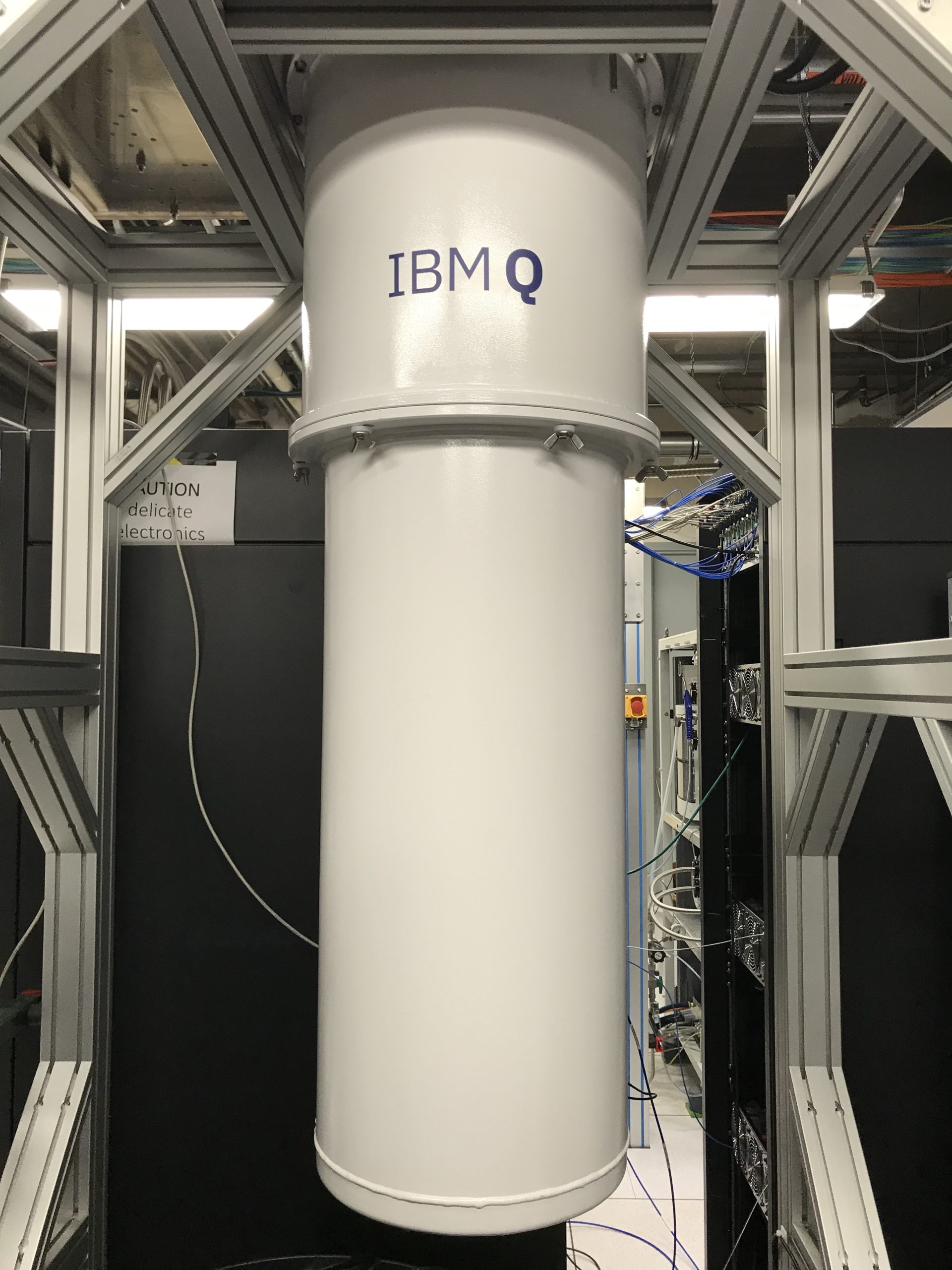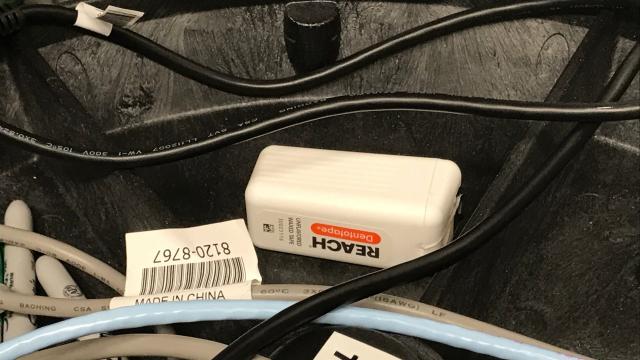Dental floss next to an IBM quantum computer.Photo: Ryan F. Mandelbaum
On a large plot of land beneath circling turkey vultures an hour north of New York City sits a crescent-shaped building. Inside of it are some of the world’s most cutting-edge quantum computers, stored in dilution refrigerators about the right size to hold an adult human. And beside one of those setups, atop a large plastic roller, was REACH dental floss – a crucial scientific tool.
Science often requires sterile environments and super-precise electronics, but as we’ve reported before, it also requires a lot of ingenuity. So it shouldn’t be surprising that even the country’s most advanced research labs sometimes rely on duct tape, or, in this case, dental floss.
In fact, dental floss is old news in these ice-cold experiments. “That’s an old technology,” Irfan Siddiqi, professor at the Quantum Nanoelectronics Laboratory at the University of California, Berkeley told me. “I think the point is that dental floss is not a good thermal conductor – it doesn’t conduct heat like a metal.” It’s useful for tying up wires that must enter a super-cold dilution fridge.
Quantum computers are what some would call an emerging technology. They aren’t useful for much just yet, but in the future they might model molecules for drug discovery, break public-key cryptography, and solve advanced optimisation problems.
Like regular computer bits, quantum computers’s quantum bits, or qubits, perform calculations based on two-value systems represented by zeroes and ones. But during the calculation, each zero and one comes with a given probability amplitude – a complex number that, when squared, represents a probability. The qubits interact with one another and evolve over time using the quantum mechanical ideas of superposition, entanglement, and interference to perform their algorithms.

A dilution refrigerator housing a quantum computerPhoto: Ryan F. Mandelbaum
There are several different qubit architectures from big-name companies including IBM, Google, Intel, Microsoft, and others. Generally, these systems have to be really cold, near absolute zero, in order to prevent the qubits from losing their quantum-ness.
Given dental floss’ ubiquity in these cold systems, I got the verbal equivalent of an eye roll from several physicists when I asked about it. Some were more receptive to my prying, though.
“It’s less exciting than it seems,” Michael Biercuk, primary investigator in the Quantum Control Laboratory at the University of Sydney in Australia, told me via a Twitter direct message. “Some things, like wires, need to be mechanically restrained. But the challenge is that many things you might use as ties contract a LOT when you cool them down. If they contract too much they break, or damage the things being restrained. Dental floss has nice properties at low temperature and room temperature.”
John Martinis, researcher at University of California Santa Barbara and Google, also told me that floss cinches tightly when knotted. So if you need something cheap to hold your wires together inside the dilution fridge, dental floss is your tool.
“But beware,” said Biercuk, “no waxed or flavored floss – that outgasses and ruins the vacuum!”
